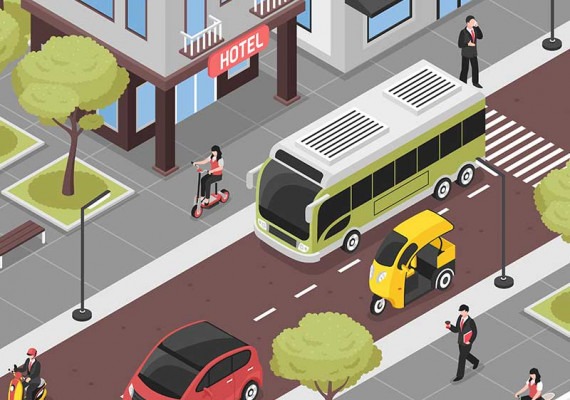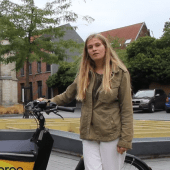MOBI-MIX

Improved implementation of shared mobility and MaaS to increase up-take of low-carbon transport in cities.
Priority Axis
Low Carbon TechnologiesSpecific objective
Low Carbon Technologies
Lead partner
City of RotterdamContact
Begindatum
02/03/2020Einddatum
31/12/2022Project budget
3 141 763 €ERDF amount
1 885 058 €ERDF rate
60%Over
Common challenge
Cars are still responsible for around 12% of EU's total CO2 emissions (EU Environment Agency 2018). This highlighted the need to develop and promote more sustainable, multimodal, and intelligent transport systems (SWOT analysis 2 Seas 2013). Two emerging trends which could contribute, and reduce congestion, were shared vehicles (mobility hubs) and Mobility as a Service (MaaS).
The first generation of Shared Mobility and MaaS concepts have proven their attractiveness to users, but their rapid implementation by the private sector resulted in unexpected drawbacks such as short life cycles of vehicles and safety issues for citizens. This has led to suboptimal deployment and cancelled projects since many cities do not have the expertise and tools in place to facilitate this implementation of the private sector in such a way that the new mobility solutions fulfil their potential and have a positive impact on CO2 reduction.
Therefore, the main need for public authorities in the 2 Seas area is to effectively collaborate with MaaS- and Shared Mobility providers in a multilaterally accepted way that serves both the public- (e.g. less Carbon Emission, reduced congestion, improved accessibility) and business needs (viable business case, fair competition, liability agreements, etc.).
MOBI-MIX addressed this challenge.
Overall objective
Main outputs
Cross border approach
Main Achievements
The MOBI-MIX project has made significant progress in implementing and experimenting with shared mobility solutions to reduce the use of private cars and their associated CO2 emissions. This was achieved by working with public authorities, research institutions, and experts from Europe and the US in five cities: Rotterdam, Antwerp, Mechelen, Norfolk, and Valenciennes.
One of the major achievements of the project was the development of the MObility DEcisions (MODE) framework, which provided cities with an understanding of the real, causal impacts of mobility interventions. This framework is a valuable tool for cities to implement shared mobility measures effectively and sustainably.
Another key output of the project was the creation of an implementation guide for cities, which provided guidance and best practices for effectively implementing shared mobility measures. This guide is a useful resource for cities looking to reduce the use of private cars and their associated CO2 emissions.
In terms of collaborations, MOBI-MIX has worked with other projects like e-smartec, which aims to enable behavioural change in higher level mobility goals. The collaboration consisted of round tables at the final event, which brought together experts from both projects to share their knowledge and experiences.
Another example is the collaboration with SOLUTIONS plus, an EU-funded project focused on the implementation of e-mobility. Throughout two days, the joint event gathered European frontrunners in the field of shared e-mobility, including 13 cities and local authorities and several public transport and micro-mobility operators, with the aim of exchanging experiences on shared e-mobility.
Overall, the MOBI-MIX project has brought new opportunities in decarbonising road transport and reducing the use of private cars, through the development of the MODE framework, the implementation guide, and the collaborations with other projects. These outputs and collaborations will be valuable resources for cities seeking to implement shared mobility measures effectively and sustainably.
Testimonial

Our current share mobility offer is expanding every day, but due to MOBI-MIX, we were able to place a first cargo bike sharing system. It was requested by more than 400 citizens and the nine cargo bikes are used very well. For example, in the month of July, there were 160 bokings for an average of 2 hours. Another interesting realisation with MOBI-MIX was the sharing neighborhood experiment. An entire neighbpurhood was challenged to leave their car aside for two months and in return they could make free use of the shared mobility offfer and the public transort of our city. It turns out that it was a success because one participant even got rid of their car during the experiment and all the other participants indicated that they felt more connected to the neighborhood also in general, more happy.
Mauranne Belmans, City of Mechelen
